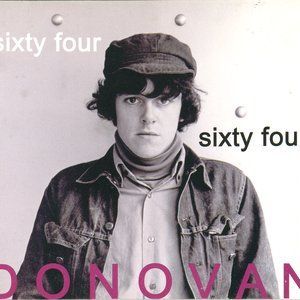Donovan would in fact slightly re-do a few of these numbers in the studio later on, with Jesse Fuller's "Keep on Trucking" appearing on a 1965 release; "Isle of Sadness" was remade with the title "Belated Forgiveness Plea," though otherwise the song and performance are quite similar to the later 1965 Pye recording; and "The Darkness of My Night" getting retitled "Breezes of Patchulie" for his typically ornate mid-'60s folk-rock treatment a bit later on, though this version is purely acoustic, and considerably plainer. As for the best items that Donovan wouldn't release in any form on his early Pye recordings, those include a good cover of Ewan MacColl's classic "Dirty Old Town" and the decent gotta-travel-on-style troubadour folk original "Freedom Road." The sole other original on the set, "Talkin' Pop Star Blues," would have given the Donovan's-a-Bob Dylan-imitator crowd some additional ammunition had it come out at the time, sounding too close to some of Dylan's early talking blues for comfort. On the whole, though, Donovan has much of his original voice in place here, and this is worthy addition to his body of recordings in fine official release-quality sound. ~ Richie Unterberger
Sixty Four
Donovan

Recorded by Donovan in 1964 (the sleeve art implies it was in the summer of that year), these nine tracks predate the singer's first official releases on Pye Records, and represent the earliest studio recordings of his to have yet come to light. (Although two of the cuts, "London Town" and "Codine," did come out on the Troubadour box set in the early '90s, the other seven were previously unreleased.) Donovan was at this point an acoustic folk musician, and these performances are pretty similar to the folk recordings he'd make for official release in 1965, though they're perhaps a bit more rooted in the traditional side of things. Though Brian Locking accompanies him on bass on "Crazy 'Bout a Woman," it's just Donovan and his acoustic guitar. And good it is, too, his distinctive style of vocal phrasing and accomplished guitar work virtually fully formed, although the material isn't as striking as the songs that lifted him to stardom in the mid-'60s.